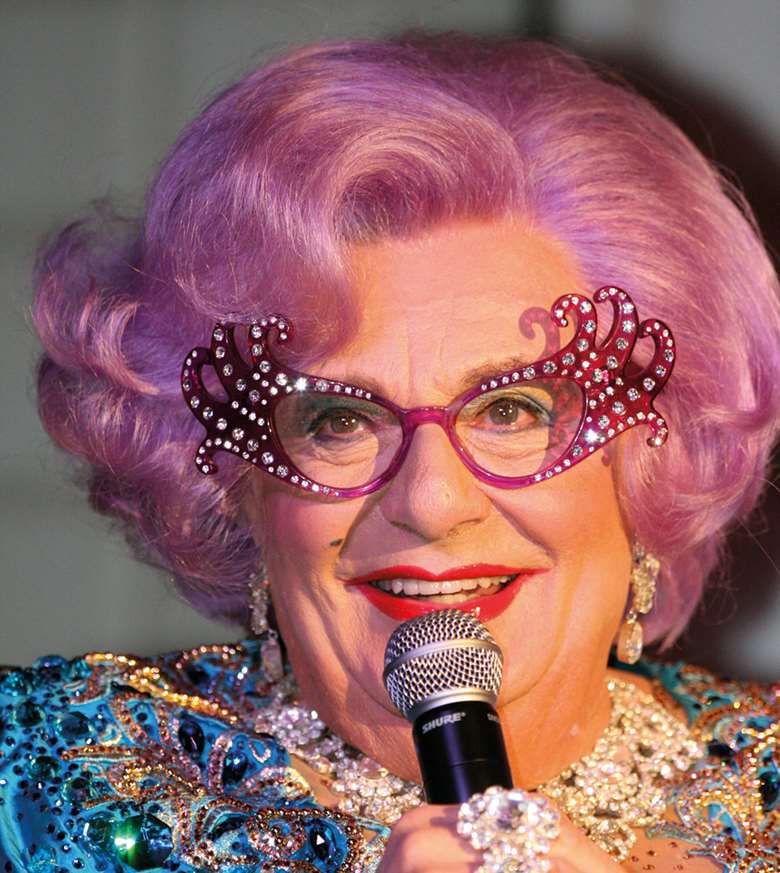In memoriam: Barry Humphries
Benjamin Ivry
Tuesday, May 23, 2023
Barry Humphries was undeniably an opera lover of devotion and authenticity

Deeply involved in all the arts, the comedian Barry Humphries, who died on April 22 at age 89, enjoyed citing musty, forgotten literati like Joseph Hocking or the landscape painter Charles Conder, whom he praised as ‘exquisitely insipid.’ Yet as an opera lover, Humphries thrilled to mainstream apogees of vocal art.
As a castaway on a November 1973 episode of BBC Radio’s Desert Island Discs programme, he opted for the duet ‘Glück, das mir verblieb’ (Happiness that remained) from the opera Die tote Stadt (The Dead City) by Erich Wolfgang Korngold.
In a return appearance as a castaway in 2009, Humphries informed Desert Island host Kirsty Young that his favourite opera was Richard Strauss’ Der Rosenkavalier, not least what he called the ‘spine-tingling moment’ of the Presentation of the Rose.
He noted: ‘I very rarely cry, but whenever this happens, at a performance of this opera, for some reason I burst into tears, I can’t explain it. It’s just an emotional overload.’
This spectacle en travesti with seething emotions was ideal for his alter ego Dame Edna Everage, whose stolid grandeur far exceeded any pantomime dame, trespassing into the sphere of opera diva. In drag, Humphries was oddly reminiscent of the Wagner parodist Anna Russell, minus of course the trained operatic voice.
Humphries informed Kirsty Young that two friends of his, Kiri Te Kanawa and Renée Fleming, sang the role of the Marschallin in Der Rosenkavalier. In 1998, viewers of Michael Parkinson’s TV chat show witnessed Dame Kiri perform with Humphries dressed up as Dame Edna. Instead of Korngold, they essayed a cabaret tune, I Always Say Hello to a Flower, composed in the Bea Lillie style in 1958 by the US entertainer Murray Grand.
According to the authoritative guidebook Classic American Popular Song: The Second Half-Century (Routledge), that selection is ‘silly but endearing’. By contrast, Humphries was endearing because of his silliness, combined with high seriousness about opera and those who sing it.
He championed the memory of the Australian bass-baritone Peter Dawson, a pupil of Sir Charles Santley who at Covent Garden performed the role of the Night Watchman in Die Meistersinger von Nürnberg conducted by Hans Richter. In 1906, Dawson participated in the first series of Gilbert and Sullivan opera recordings, while his popular recitals featured opera arias, classical song, and excerpts from oratorios.
At the 2015 Adelaide Cabaret Festival, Humphries narrated a concert tribute to the burly vocalizing of Dawson featuring the New Zealand operatic baritone Teddy Tahu Rhodes. And last year, as part of his BBC Radio series Forgotten Musical Masterpieces, Humphries again put forward Dawson as an example of an Australian cherished in memory overseas, if neglected at home.
Just over a half-century ago, Humphries recorded his own cover version of a jaunty 1920s Dawson hit, Along the Road to Gundagai, referring to a rural town of New South Wales. Yet Dawson’s singing in praise of the beauties of England, in tunes such as Glorious Devon and Old Father Thames, inspired him to leave home and dwell among the poms.
If his acidity could sometimes burn, especially in incongruous, regrettable latter-day opinions against transgender people, Barry Humphries was undeniably an opera lover of devotion and authenticity.






